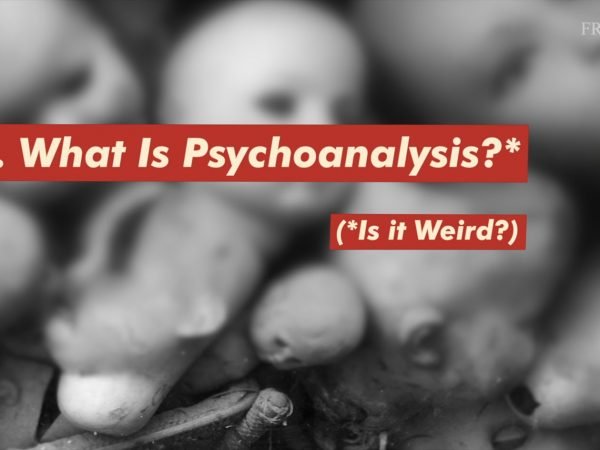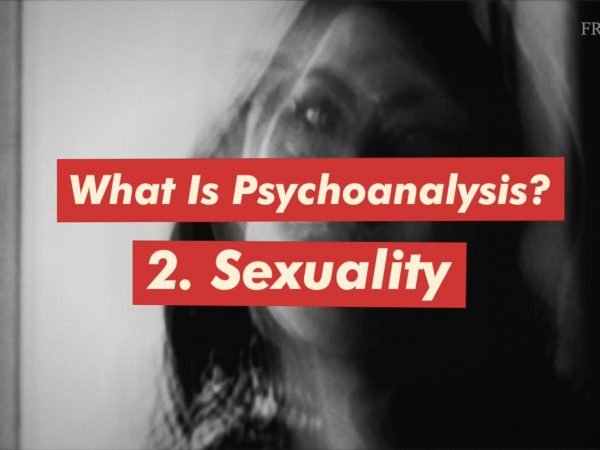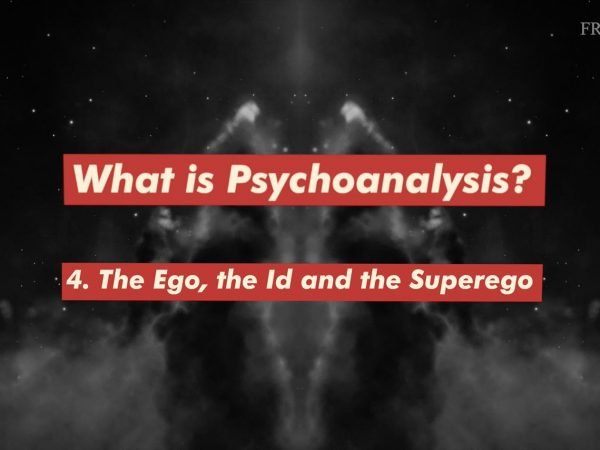These films are intended to facilitate first encounters with Freud’s thought.
If you’re studying the psychodynamic approach, this resource is for you!
In this episode:
- The emotional world of children
- His Majesty the Baby
- The mother as first love object
- Is it sexual?
- Jealousy, rivalry, hatred and anxiety
- The role of the father Gender: Freud didn’t think you were just ‘born a boy’ or ‘born a girl’
- There is no perfect resolution of the Oedipus complex
- It marks us for life
A factsheet (PDF) accompanies this series.
-
Transcript
-
Well, the emotional world of little children is not a peaceful world. It’s a world in which the child experiences intense desires, intense anxieties. It’s a time when, for the first time, love relationships come onto the scene. And with love relationships, problems appear on the scene.
Around the Oedipal period, around the ages of three to five, you’re being asked to do such difficult things, to give up such a lot. I mean, the idea of becoming obedient, of not taking things that you want, of letting other people go first. He talks later of the baby as ‘His Majesty the Baby’, as a figure who’s at the centre of everything. And for Freud, the Oedipus complex is about having to face the fact that we’re not omnipotent, that we can’t possess our parents, and he thinks this has a tremendous powerful, violent force in infancy, that’s universal.
The Oedipus complex is a genuine complex. So it’s not Oedipus simplex. In its simple and misunderstood form, it is about that the child loves the parent of the opposite sex and hates the parent of the same sex as a rival.
There was the early idea in psychoanalysis that the boy loves the mummy and the girl loves the daddy and some people today still believe in that. But Freud had already recognised that things are more complex. He revised that theory to say that both little girls and little boys love, first of all, their mother because she’s the one who has provided all the care for the child, or whoever stands in for the mother.
Now Freud had absolutely no reservation calling this sexual. But the idea of wanting to have sex with a parent at a very young age it’s not really so straightforward because there’s the question of what wanting to have sex means. I don’t think Freud said children want to have sex with their parents, what children want is, at the Oedipal stage, they want to in some way possess the mother. They want to fuse with her. They have some idea that the genitals may play a part in this as well, but they have no clear idea, and certainly not the idea that it involves what adults would consider to be genital sex.
And so if, as a, I don’t know, a 23 year old, you say ‘I want to have sex with that person’, that might mean one thing to you. But a three year old child who wants to get satisfaction from its mother somehow, and its mother who has been giving it satisfaction all of its life, it means something totally different. So it might want to rub its genitals against her, it might want to suck part of her, it might want to do all sorts of things with her that then it might never want never want to admit to having wanted again. By the time its ten or twelve it might find that just ultimately disgusting.
For Freud, the child itself wants to be loved. It’s not just about the child loving, it’s also about the child being loved. But mother’s got other fish to fry, she’s interested in other things.
There’s a competition, there’s a rivalry of some sort. So the Oedipal triangle is about love and jealousy, so it’s about love and exclusion, and hatred as it weaves itself into that.
Its got the strong love for the mother. Its got the hate for any rival: a sibling, a father. Its got conflicts arising from the love and hate for the same person, and the anxiety of what they might do with him if they discover his hostile feelings.
The child will naturally cling to the mother. Now, when the mother also clings to the child and doesn’t allow enough separation, maybe because the child is the only thing that the mother enjoys in her life, then that can become problematic for the child. And that would be part of the Oedipus complex.
And so a mother might be incredibly overwhelming and actually, you might, you know, the idea that your dad could step in and do something about that, you might go ‘errrgh’ to your dad because he’s laying down a rule, but you might also be incredibly relieved that he was able to do that for you. So the father, in the Freudian model, is the person who represents authority, who represents the law, and who, in a sense, also functions, and this is very crucial, as a love object for the mother. It just needs to be something that captures mother’s interest more than we do. It could be another woman, it could be a family friend, it could be a relative, anyone who has the function of separating the mother from the child and the child from the mother.
The crucial thing about the resolution of the Oedipus complex is the identifications that take place. For Freud, he didn’t believe that you were just ‘born a boy’ and ‘born a girl’. He thought that how we move to the position of either being a boy or a girl, or indeed a man or a woman, comes about at the time of the Oedipus Complex. So one of the points of having a father and a mother, according to classical psychoanalysis, is that you have these exemplars, these instances of gender. You have to position yourself in relation to this idea of ‘man’ or ‘woman’, then you have to try to ascribe the meaning to it and, in a way, you can’t really ascribe a meaning to it that sticks. Whatever you say a man is, you’ll come across a man who isn’t that, and vice versa.
And these are really difficult and intense crisis moments for a young child to cope with and the result is not necessarily always a stable situation. Basically, there is no proper, perfect, neat resolution of the Oedipus complex. It’s always something fudged. And so the resolution is kind of: ‘It’s okay, you can function, you’re not going to melt down, everybody can co-exist.’ But, it’s always just… blergh! It’s a mess. In a way, psychoanalysis is about how someone hasn’t been able to constitute themselves as a man or woman. What we witness in each case is the failure of each boy and each girl to move through, perfectly, that complex.
Oh yeah, isn’t that what human life is? Just trying to get over the horror of your family!
More episodes

What is Psychoanalysis? – Is it Weird?
A 4-part educational film series for students and teachers.

What is Psychoanalysis? – Sexuality
Freud's account of sexuality was very different to mainstream ideas about it.

What is Psychoanalysis? – The Ego, the Id and the Superego
Freud discovered a mind at war with itself.